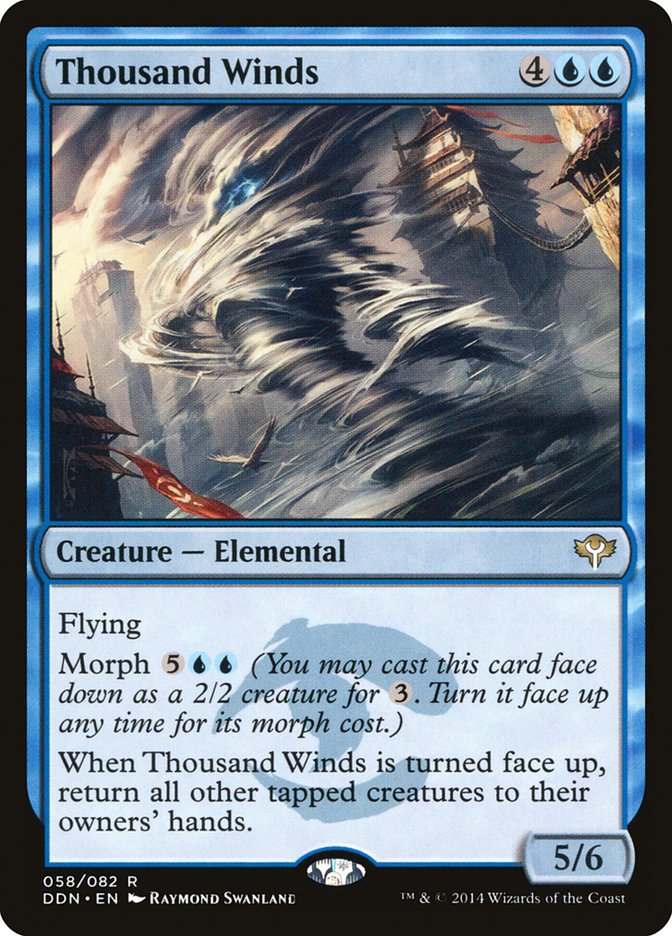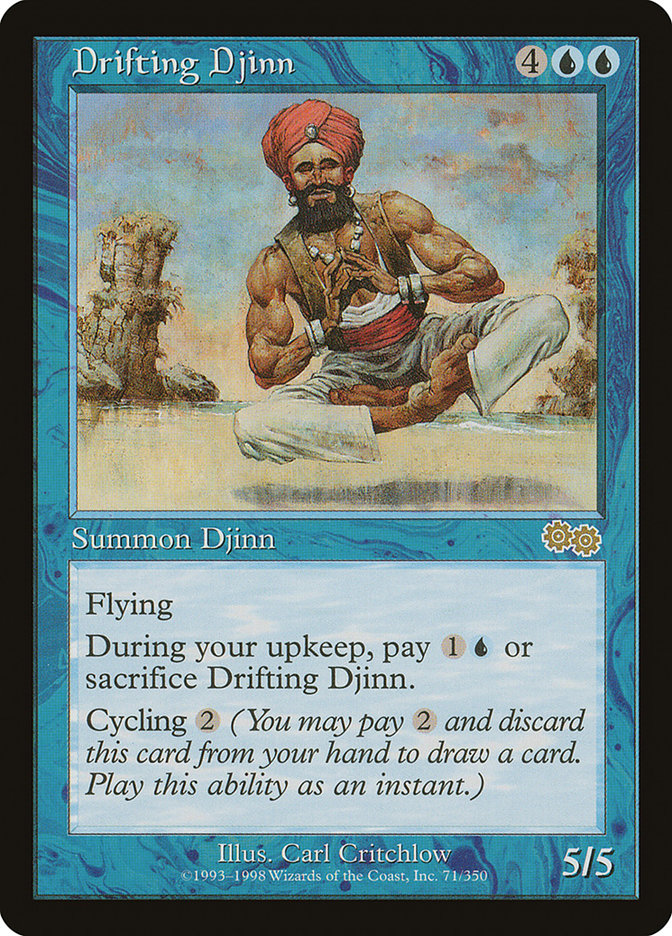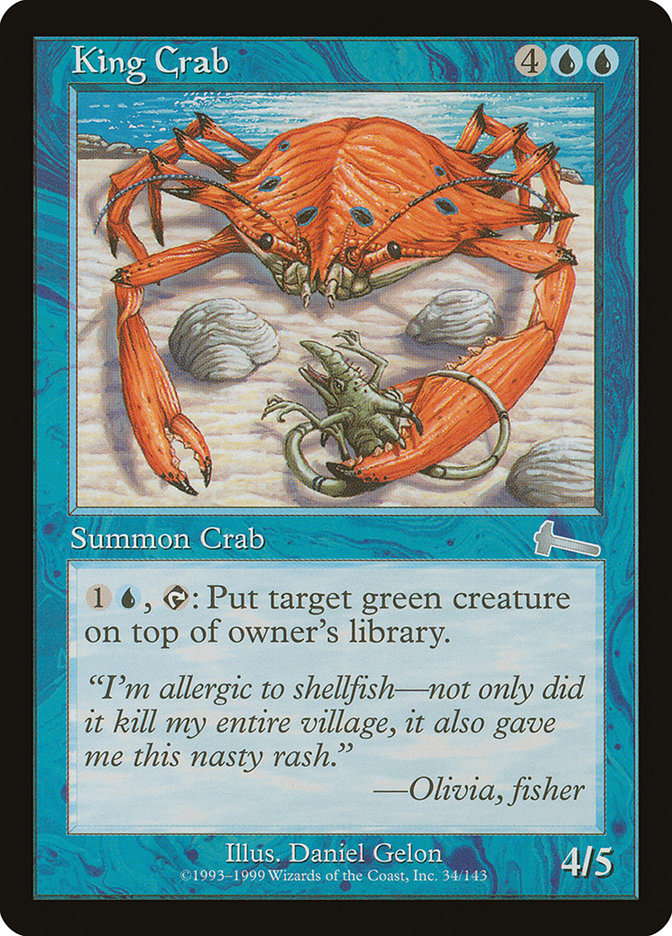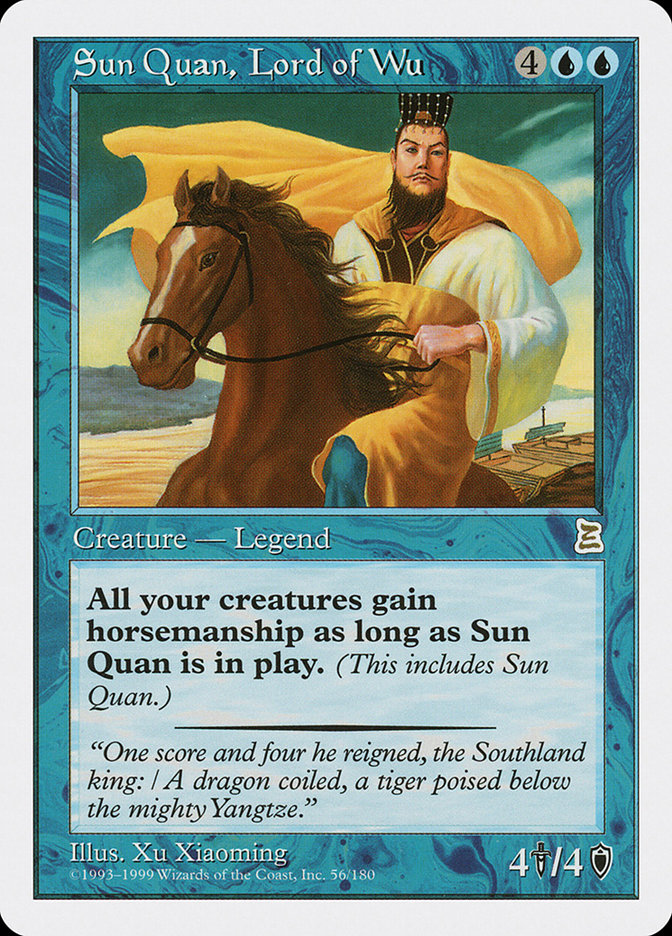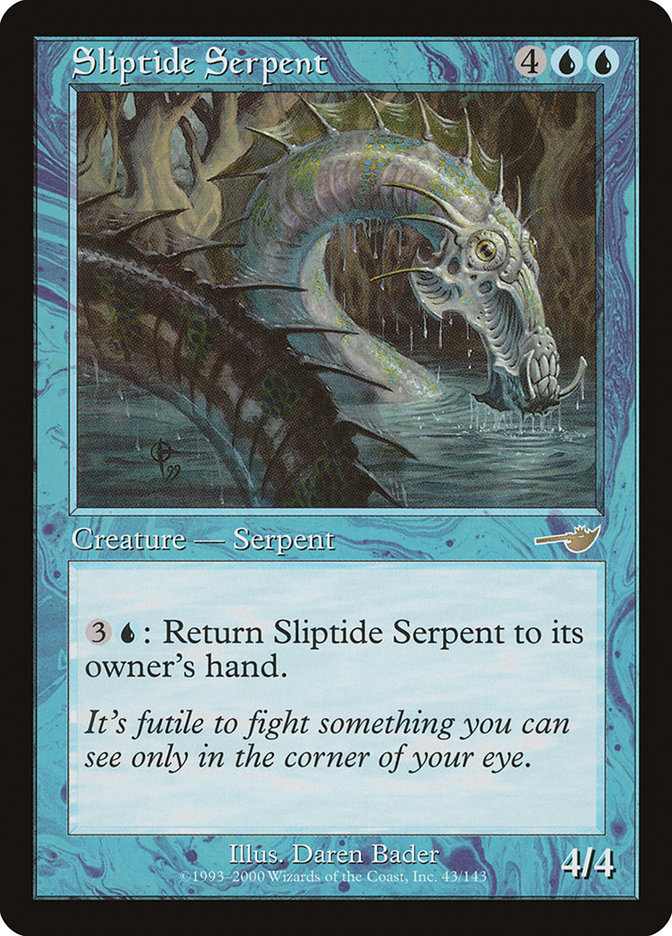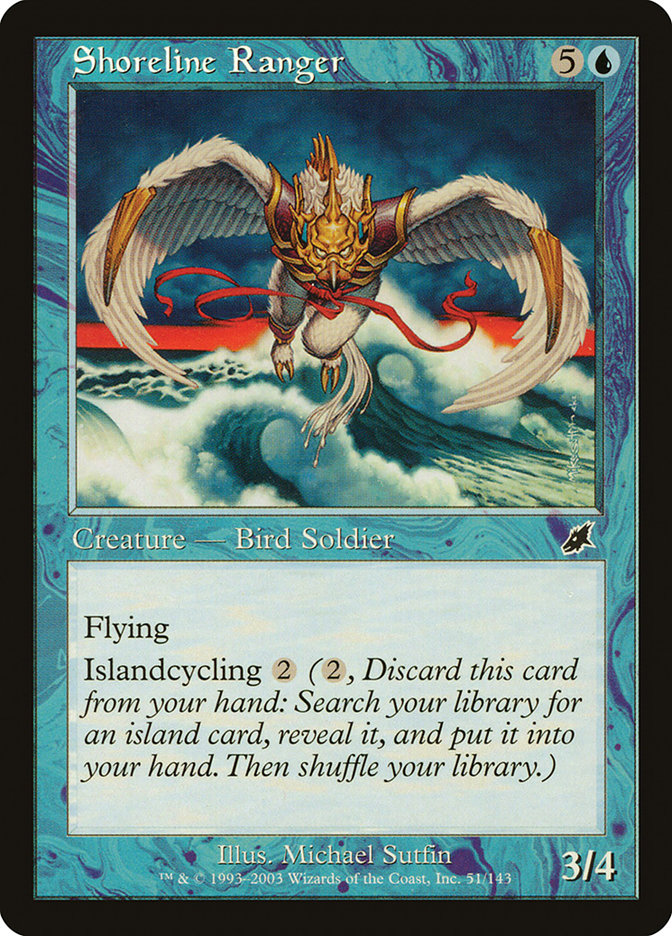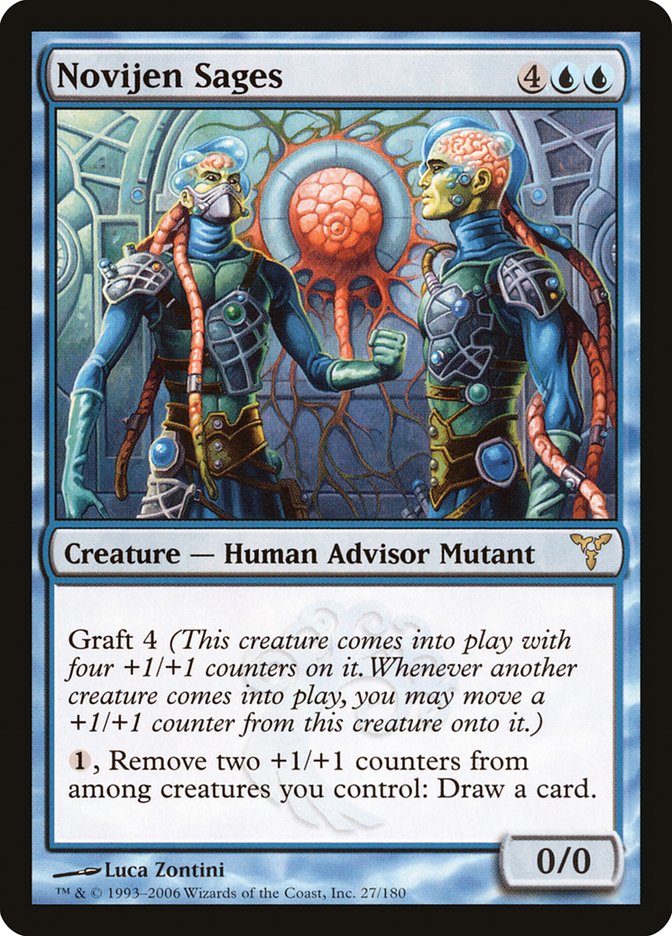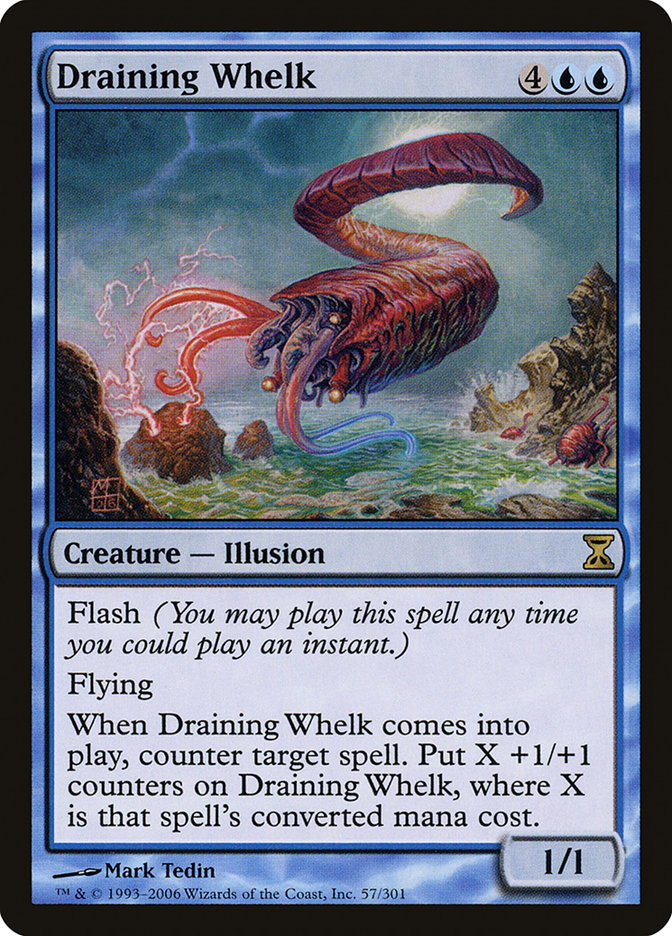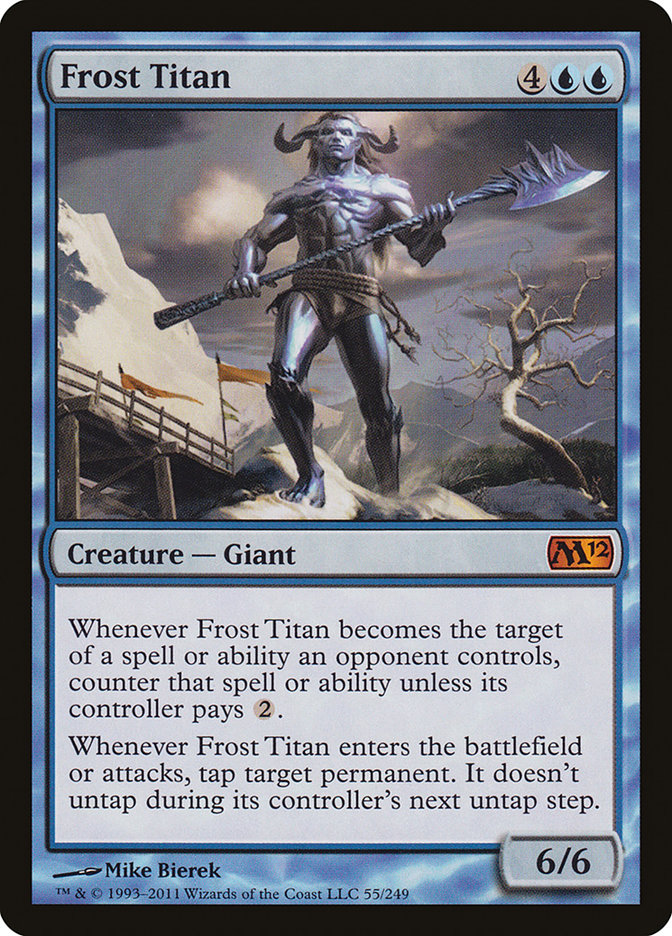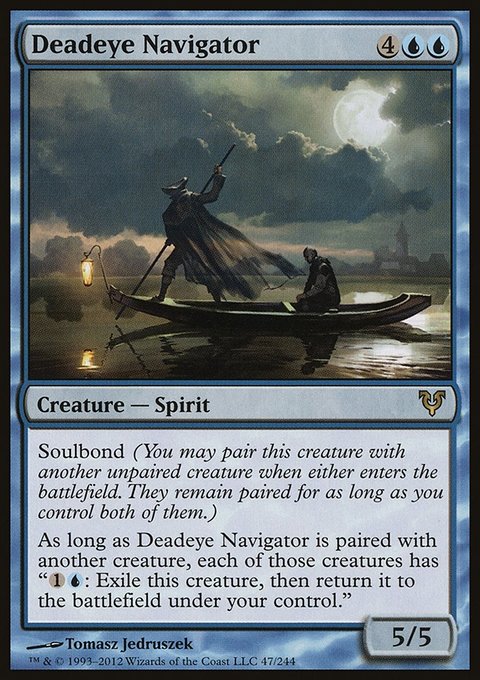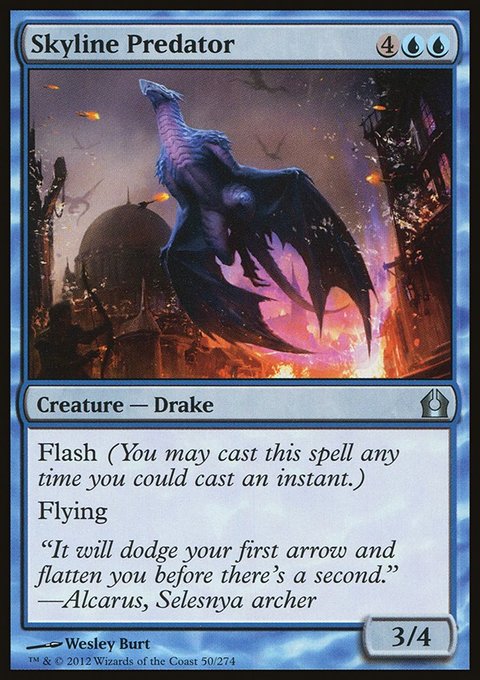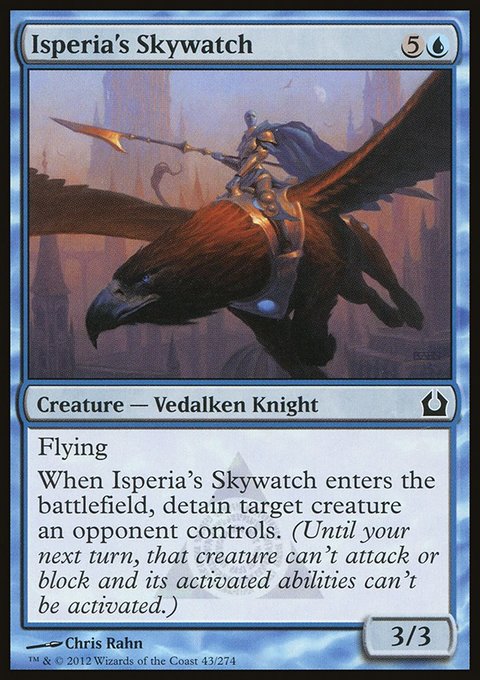Thousand Winds MTG Card
| Card sets | Released in 5 setsSee all |
| Mana cost | |
| Converted mana cost | 6 |
| Rarity | Rare |
| Type | Creature — Elemental |
| Abilities | Flying,Morph |
| Power | 5 |
| Toughness | 6 |
Text of card
Flying Morph (You may cast this card face down as a 2/2 creature for . Turn it face up any time for its morph cost.) When Thousand Winds is turned face up, return all other tapped creatures to their owners' hands.
Cards like Thousand Winds
Thousand Winds is a unique creature card in Magic: The Gathering that can have a substantial impact on the board state. This card shares similarities with creatures like Windreader Sphinx, which also benefits the player by providing a powerful effect contingent on creatures with flying. Thousand Winds steps up with its formidable morph ability, offering a surprise tactic by turning face up and bouncing other creatures to their owner’s hands.
Considering other options in the format, Frost Titan embodies a direct approach to controlling the battlefield by freezing a target upon entering the battlefield or attacking. Unlike Thousand Winds, which requires setup and the mana to morph from face-down, Frost Titan constantly applies pressure. Additionally, Aethersnipe offers a comparable effect to the selectivity of Thousand Winds, allowing the bouncing of a single target and presenting the evoke cost as a flexible alternative to traditional casting methods.
However, while the aforementioned creatures each carry their advantages, Thousand Winds distinguishes itself through its capacity to clear multiple threats at once, establishing it as a contender for deck inclusion among its evasive-creature peers in Magic: The Gathering.
Cards similar to Thousand Winds by color, type and mana cost
Card Pros
Card Advantage: When Thousand Winds is turned face up, it returns all other tapped creatures to their owners’ hands, potentially providing a significant swing in board presence. This can lead to gaining card advantage by effectively negating your opponents’ previous turns.
Resource Acceleration: While it does not directly produce additional mana, the return of tapped creatures can reset mana dorks or other creatures with tap abilities that generate resources, which indirectly accelerates your available resources for the next turn.
Instant Speed: Although Thousand Winds itself is a creature, it has a morph ability that can be activated at instant speed, allowing you strategic flexibility. You can morph Thousand Winds at the end of your opponent’s turn to keep them unaware of what’s face down, then flip it for its morph cost whenever you want to trigger its powerful effect during a turn.
Card Cons
Discard Requirement: When leveraging Thousand Winds’ morph ability, a player must flip it face up by discarding cards, which could be a setback when your hand is already depleted.
Specific Mana Cost: This card requires a substantial investment of both blue and generic mana, making it a challenge to cast in a multicolored deck without the right mana base.
Comparatively High Mana Cost: With an initial casting cost that is steep, Thousand Winds may arrive too late in the game to influence the board, especially against fast-paced decks.
Reasons to Include in Your Collection
Versatility: Thousand Winds offers flexibility to your deck, acting as both a formidable flying threat and a reset button for the battlefield when its morph ability is activated.
Combo Potential: This card works well in synergistic combos, especially with strategies that flip creatures face-up for impactful effects, or in decks that bounce creatures to hand to re-utilize morph abilities.
Meta-Relevance: With numerous creatures swarming the field in the current game, Thousand Winds can serve as a tactical response, clearing the way and swinging the momentum in your favor.
How to beat
Thousand Winds represents a unique challenge on the battlefield. This formidable creature card from Magic: The Gathering can swiftly turn the tide of a match when it’s flipped face-up, sending other attacking creatures back to their owner’s hand with its morph ability. Successfully countering this card often hinges on preemptive action, such as using removal spells before your opponent gets the chance to morph Thousand Winds. Instant speed removal like Murder or Path to Exile effectively deals with this threat if you can cast them before the morph ability is activated.
Diligent board control is also vital. Keeping pressure with smaller, recurring creatures may discourage an opponent from investing the mana to play and flip Thousand Winds. Utilize counterspells to prevent your adversary from ever resolving this high-cost card. Lastly, cards that restrict creature abilities or deny untapping can limit the usability of morph effects overall, leaving Thousand Winds as nothing more than a costly paperweight on the field.
Playing intelligently around this MTG card means always being ready to disrupt your opponent’s strategy and never allowing them the opportunity to take full advantage of Thousand Winds’ powerful ability.
BurnMana Recommendations
Mastering MTG gameplay involves more than raw power; it’s about understanding when and how to use cards like Thousand Winds to their full potential. With the insights shared, you are better positioned to decide how this card could synergize with your deck’s strategy, and you can now appreciate the nuances of when to play and how to counter such a card. We welcome you to further your MTG experience by exploring strategic combinations, building around cards like Thousand Winds, and honing your competitive edge. Dive deeper into your MTG journey with us and enrich your collection with strategic gems.
Where to buy
If you're looking to purchase Thousand Winds MTG card by a specific set like Duel Decks: Speed vs. Cunning and Khans of Tarkir Promos, there are several reliable options to consider. One of the primary sources is your local game store, where you can often find booster packs, individual cards, and preconstructed decks from current and some past sets. They often offer the added benefit of a community where you can trade with other players.
For a broader inventory, particularly of older sets, online marketplaces like TCGPlayer, Card Kingdom and Card Market offer extensive selections and allow you to search for cards from specific sets. Larger e-commerce platforms like eBay and Amazon also have listings from various sellers, which can be a good place to look for sealed product and rare finds.
Additionally, Magic’s official site often has a store locator and retailer lists for finding Wizards of the Coast licensed products. Remember to check for authenticity and the condition of the cards when purchasing, especially from individual sellers on larger marketplaces.
Below is a list of some store websites where you can buy the Thousand Winds and other MTG cards:
 BUY NOW
BUY NOW BurnMana is an official partner of TCGPlayer
- eBay
- Card Kingdom
- Card Market
- Star City Games
- CoolStuffInc
- MTG Mint Card
- Hareruya
- Troll and Toad
- ABU Games
- Card Hoarder Magic Online
- MTGO Traders Magic Online
See MTG Products
Printings
The Thousand Winds Magic the Gathering card was released in 5 different sets between 2014-09-05 and 2019-08-23. Illustrated by Raymond Swanland.
| # | Released | Name | Code | Symbol | Number | Frame | Layout | Border | Artist |
|---|---|---|---|---|---|---|---|---|---|
| 1 | 2014-09-05 | Duel Decks: Speed vs. Cunning | DDN | 58 | 2015 | Normal | Black | Raymond Swanland | |
| 2 | 2014-09-26 | Khans of Tarkir Promos | PKTK | 58s | 2015 | Normal | Black | Raymond Swanland | |
| 3 | 2014-09-26 | Khans of Tarkir | KTK | 58 | 2015 | Normal | Black | Raymond Swanland | |
| 4 | 2019-08-23 | Commander 2019 | C19 | 100 | 2015 | Normal | Black | Raymond Swanland | |
| 5 | The List | PLST | DDN-58 | 2015 | Normal | Black | Raymond Swanland |
Legalities
Magic the Gathering formats where Thousand Winds has restrictions
| Format | Legality |
|---|---|
| Historicbrawl | Legal |
| Historic | Legal |
| Legacy | Legal |
| Oathbreaker | Legal |
| Gladiator | Legal |
| Pioneer | Legal |
| Commander | Legal |
| Modern | Legal |
| Vintage | Legal |
| Duel | Legal |
| Explorer | Legal |
| Penny | Legal |
| Timeless | Legal |
Rules and information
The reference guide for Magic: The Gathering Thousand Winds card rulings provides official rulings, any errata issued, as well as a record of all the functional modifications that have occurred.
| Date | Text |
|---|---|
| 2014-09-20 | A permanent that turns face up or face down changes characteristics but is otherwise the same permanent. Spells and abilities that were targeting that permanent, as well as Auras and Equipment that were attached to the permanent, aren’t affected. |
| 2014-09-20 | Any time you have priority, you may turn the face-down creature face up by revealing what its morph cost is and paying that cost. This is a special action. It doesn’t use the stack and can’t be responded to. Only a face-down permanent can be turned face up this way; a face-down spell cannot. |
| 2014-09-20 | At any time, you can look at a face-down spell or permanent you control. You can’t look at face-down spells or permanents you don’t control unless an effect instructs you to do so. |
| 2014-09-20 | Because the permanent is on the battlefield both before and after it’s turned face up, turning a permanent face up doesn’t cause any enters-the-battlefield abilities to trigger. |
| 2014-09-20 | If a face-down permanent leaves the battlefield, you must reveal it. You must also reveal all face-down spells and permanents you control if you leave the game or if the game ends. |
| 2014-09-20 | It doesn’t matter if Thousand Winds is tapped or untapped (or even on the battlefield) when its last ability resolves. Tapped creatures except Thousand Winds will be returned to their owners’ hands. |
| 2014-09-20 | Morph lets you cast a card face down by paying , and lets you turn the face-down permanent face up any time you have priority by paying its morph cost. |
| 2014-09-20 | The face-down spell has no mana cost and has a converted mana cost of 0. When you cast a face-down spell, put it on the stack face down so no other player knows what it is, and pay . This is an alternative cost. |
| 2014-09-20 | When the spell resolves, it enters the battlefield as a 2/2 creature with no name, mana cost, creature types, or abilities. It’s colorless and has a converted mana cost of 0. Other effects that apply to the creature can still grant it any of these characteristics. |
| 2014-09-20 | You must ensure that your face-down spells and permanents can easily be differentiated from each other. You’re not allowed to mix up the cards that represent them on the battlefield in order to confuse other players. The order they entered the battlefield should remain clear. Common methods for doing this include using markers or dice, or simply placing them in order on the battlefield. |
